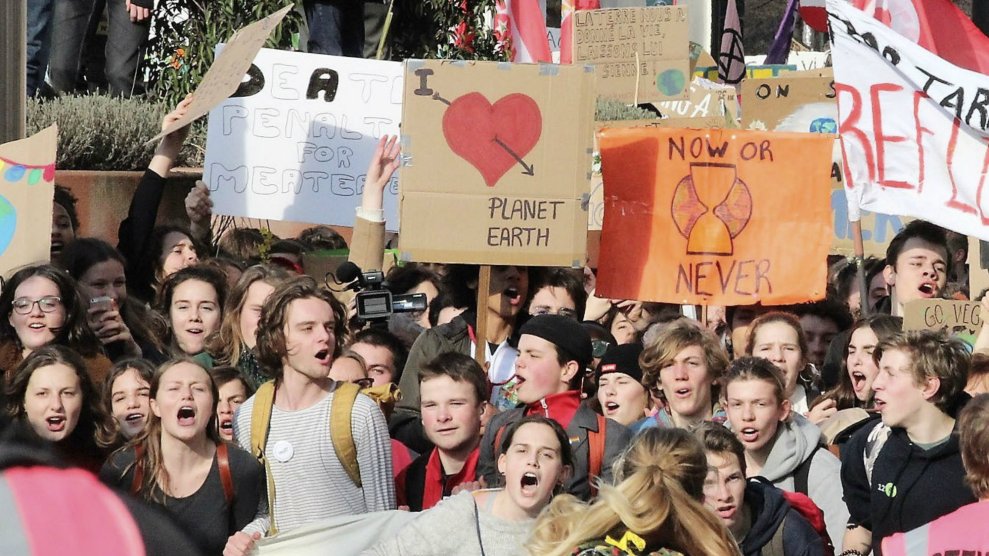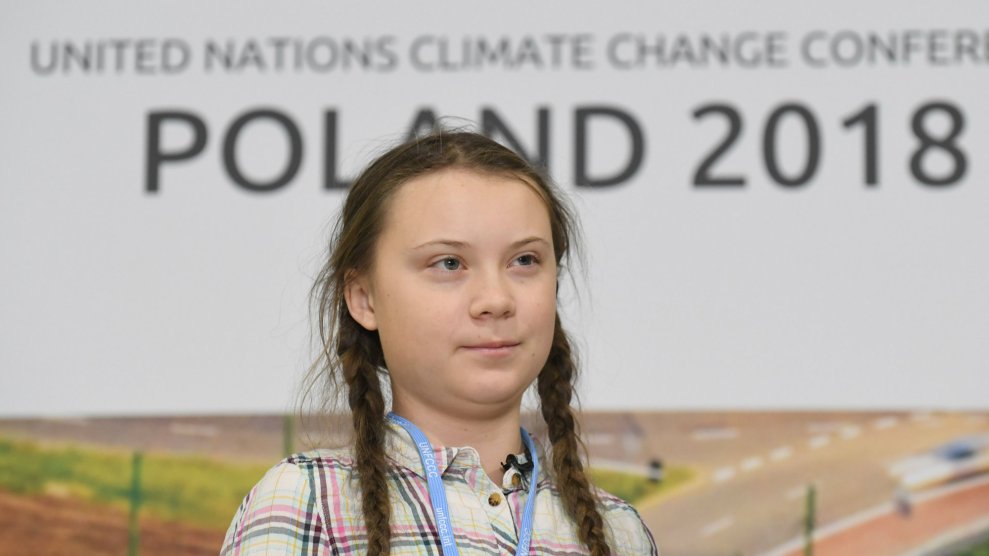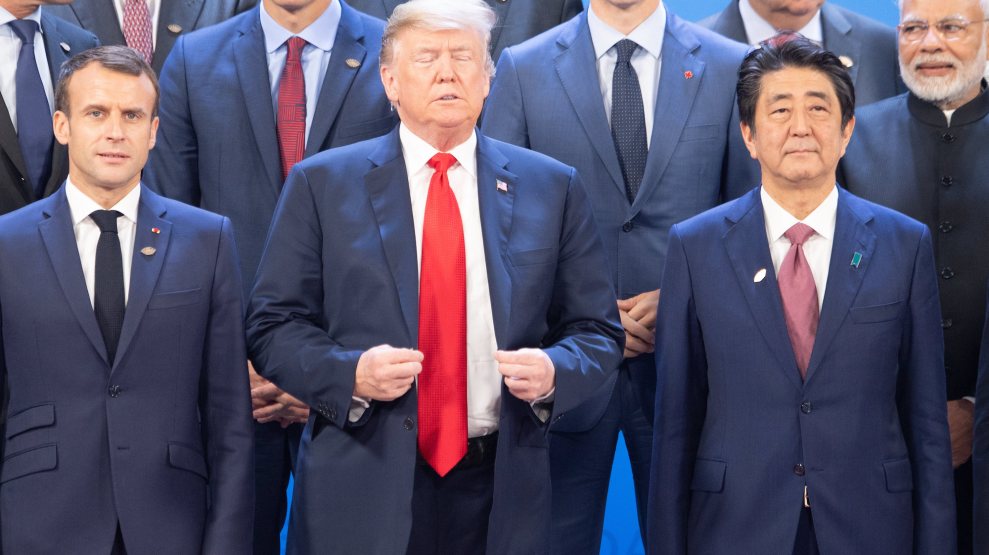
Kyodo via AP Images
This story was originally published by HuffPost. It appears here as part of the Climate Desk collaboration.
On Fridays at 9 a.m., 10-year-old Lilly Platt doesn’t head to school like other kids in her class. Instead, she takes placards and a keep-cup filled with hot chocolate, and stands outside the town hall in Zeist, just east of Utrecht in the Netherlands.
Her signs read “School Strikes for Climate.” For the last six months, Lilly has been on a peaceful protest for the planet.
“By missing school, I’m making a point about climate change, because what’s the point of learning if our future is being taken away?” Lilly asks.
Lilly echoes the rallying cry of the youth climate movement Fridays for Future, sparked by 16-year-old Swedish activist Greta Thunberg, who last year ditched school to protest outside parliament in Stockholm. Greta’s message was simple: She called for politicians to take action on climate change, and said she would strike from school—her main hold of power as a student below voting age—until the Swedish elections in September.
When Lilly saw videos of Greta’s activism online, she knew what she needed to do.
“She was talking about the Paris agreement and the next generation. I thought, I just have to do this,” Lilly says.
Lilly has to do this because she believes her generation’s future is at risk. A landmark United Nations report last year warned we have less than 12 years to cut emissions by half and keep the planet’s warming to less than 1.5 degrees Celsius above pre-industrial levels to avoid the worst effects of climate change.
By 2030, Lilly will be just 22. “I would like to see a world that still has the Amazon, that doesn’t have species going extinct every five seconds,” she says. “I want to see a world that has clean oceans, and that doesn’t have plastic pollution anywhere, and people live in harmony with nature; not people [who] only see money.”
The Netherlands is one of the largest greenhouse gas emitters in the European Union, and in October, a Dutch appeals court ordered the government to cut emissions faster than planned—by at least 25 percent by 2020 (compared with 1990 levels). Now, Lilly wants to hold politicians to account.
“I’m protesting so the politicians will start to listen, and all governments will align to Paris agreement” and keep the planet from warming more than 1.5 degrees, she says. “School is the only thing children have. If the children strike on the weekend, it doesn’t make a difference.”
Originally from London, Lilly’s family moved to the Netherlands in 2014. She decided she wanted to try to save the planet three years ago, at age 7, after counting 91 pieces of plastic waste while she was out walking with her grandfather. “My grandpa told me everything that falls on the ground eventually comes to the ocean. Then I decided I have to do something about this, I have to pick it up.”













